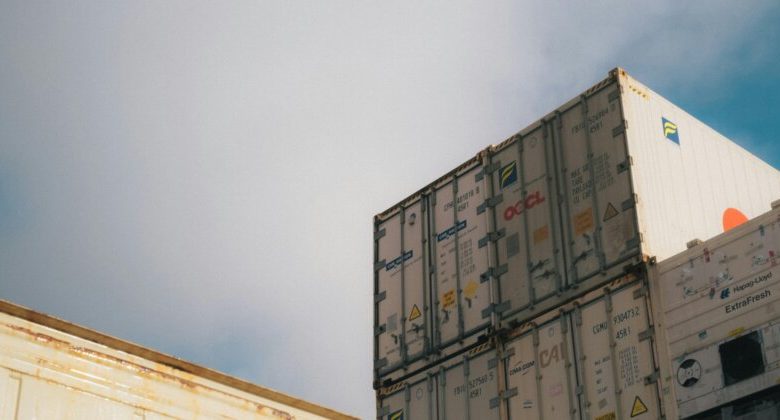How to Choose the Right Freight Forwarding Partner

Supply chains have evolved. Today’s businesses no longer deal with just moving goods from point A to point B. They face increasing challenges: tighter delivery windows, stricter regulations, rising fuel costs, and fluctuating demand. Every element in the chain needs coordination, speed, and adaptability. That’s why logistics—particularly land freight—demands more strategic thought than ever before. With growing competition and consumer expectations, businesses must lean into smarter freight planning, not just cheaper shipping. Choosing the right partner isn’t about rates alone. It’s about reliability, transparency, and synergy. Success in this space depends not only on movement but on precision. That means picking the right freight forwarding partner.
Understanding Freight Forwarding and Its Role
Think of freight forwarding as the bridge between your business and the open road. A freight forwarder doesn’t move your goods directly; they orchestrate the process. From documentation and customs clearance to warehousing and insurance, they manage every link in the freight journey. Good forwarders don’t just offer services—they offer problem-solving. They know routes, regulations, and how to handle disruptions. Their role blends logistics expertise with strategic planning. When they do their job well, your goods arrive on time, your costs stay predictable, and your customers stay satisfied. For land-based operations, their influence grows even stronger. But what makes one forwarder stand out from another?
Why Service Scope and Flexibility Matter
Today’s business climate changes fast. One week you may need domestic coverage; the next, international customs expertise. A good forwarding partner adapts with you. They offer a wide range of services, from less-than-truckload (LTL) shipments to full truckload (FTL), customs clearance, bonded warehousing, and digital tracking. But range alone isn’t enough. Flexibility matters. Can they handle last-minute schedule changes? What happens when there’s a weather delay? Or a port strike? Can they reroute efficiently? Land freight forwarding companies that excel don’t just follow a script—they anticipate problems and offer alternate plans before you even ask. Flexibility isn’t a bonus feature; it’s a core requirement in modern logistics partnerships.
The Importance of Industry Experience and Reputation
A partner’s track record tells you everything. You want someone who’s handled your type of shipments, understands your industry, and knows how to navigate cross-border challenges. This is where experience counts. But don’t stop at years in business. Look deeper. Have they worked with clients of your size? Do they understand the nuances of your products? For example, shipping electronics isn’t the same as moving food products. Their approach must reflect those differences. Also, dig into their reputation. Read reviews, ask for case studies, and speak with past clients if possible. Experience builds confidence. Reputation builds trust. You need both to ensure your freight isn’t just moved—but moved with care.
Evaluating Communication and Transparency
No one likes being left in the dark—especially when shipments are delayed. Your forwarding partner should make communication easy, clear, and frequent. This goes beyond basic customer service. Look for partners who assign a dedicated point of contact. Can you get real-time updates on your shipment? Do they offer a web portal or app that keeps you informed? Ask how they handle unexpected issues—do they call you before you call them? Transparency also means clear pricing. You shouldn’t find out about “extra” fees after the job is done. A reliable forwarder sets the right expectations from day one. And when issues arise, they explain, adjust, and keep things moving.
Technology Integration and Real-Time Tracking
We live in a world where data moves faster than trucks. Your freight forwarding partner should use that to your advantage. Technology isn’t just a bonus—it’s how modern logistics stays competitive. A good partner uses digital tools to track shipments, predict delays, manage paperwork, and streamline operations. Can you log in and check the exact location of your goods? Do they offer automation for repeat orders or integrated dashboards for reporting? These tools reduce manual errors and increase operational visibility. When your partner uses strong tech, you gain peace of mind. And in logistics, peace of mind translates directly into stronger customer satisfaction and better business planning.
Assessing Compliance and Regulatory Knowledge
When it comes to land freight, rules don’t just vary by country—they can differ by state, region, and even city. A solid forwarding partner knows this landscape well. They don’t just move your goods; they make sure everything stays legal along the way. From customs procedures to vehicle weight limits, from hazardous materials documentation to cross-border transit laws, they handle every detail. Ask if they stay updated on regulatory changes. A smart partner invests in compliance because fines and delays damage reputations. You shouldn’t have to babysit this process. The right forwarder already knows what permits, labels, and formats your shipment needs to avoid complications.
Insurance and Risk Management Support
Freight always carries risk. Accidents, theft, and natural disasters can derail even the best-laid plans. That’s why insurance coverage isn’t optional—it’s essential. Your forwarding partner should guide you through all options. Do they provide comprehensive insurance, or just third-party referrals? Can they tailor coverage to your shipment value? Risk management goes further than paperwork. It includes route planning that avoids unsafe zones, security seals, proper packaging, and real-time updates that let you act before a risk becomes a crisis. A top-tier forwarder treats your cargo as if it were their own. That mindset makes all the difference when risk turns real.
In land freight logistics, success doesn’t come from luck. It comes from choosing the right partner—someone who sees your business not as a shipment but as a relationship. The best forwarding partners offer more than trucks and trailers. They offer reliability, clarity, and foresight. They prepare you for risks, adapt to your growth, and deliver consistent performance. In a world where delays cost money and poor planning hurts reputation, your freight partner becomes an extension of your brand. Make that choice with care, and you’ll not only streamline operations—you’ll strengthen your entire supply chain.




